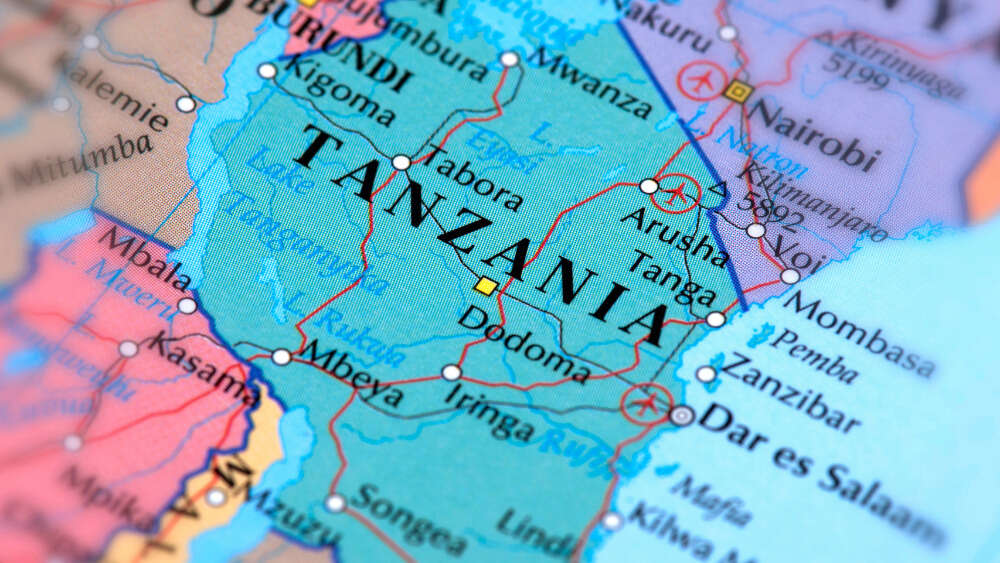Tamie Davis and her husband Arthur are missionaries with the Church Missionary Society (CMS) Australia in Tanzania. They support the Fellowship of Evangelical Students (TAFES) staff in their ministry to Tanzanian university students.
It’s late afternoon, and I’m about to leave the house when THING! A notification pops up on my phone, and then DING! THING! THING! A few more in quick succession. My heart drops. I know the first message will be a Whatsapp group report of a tragedy, and the following messages will all be pole messages – pronounced POH-lay; these are expressions of sympathy.
I open the app with trepidation. I see the pictures of the crumpled car and the road it rolled on twice. Unfortunately, these incidents are common, even though the speed limit on Tanzania’s highways was lowered to 80 km/h for large vehicles a few years ago. But this time a delay. Our friend Robert and his family lived through this accident but were unharmed. The comments extend their condolences to Robert for the experience and praise God for his salvation.
I put my phone in my purse, say goodbye to my husband, who cooks dinner for the kids, and leave. I’m actually on my way to offer my condolences to another family. When someone dies in Tanzania, their community sits with the family for the days leading up to the funeral. Then weeks and months later, people also join the relatives. It’s called a pole visit. Andrew is a TAFES Associate and recently lost his mother, so a time has been arranged for other TAFES Associates to sit down with him. I don’t know Andrew well, but Alice organizes the visit and explains that it is not about my relationship with him but about all of us representing TAFES, so my presence is required.
Andrew’s house isn’t far from mine in the northern suburbs of Dar Es Salaam, but it’s about twice the size. He is one of the generations of Tanzanians who grew up in the village, went to university in the 90s, and contributed to Tanzania’s growing economic stability – in 2020, Tanzania went from a low-income country by the World Bank to a low- middle-income country. He is an architect, small business owner, and investor and hawithportant discipleship ministry. He lives in a mansion he and his wife have built with her and their three children, plus some relatives and, until recently, his mother.
It strikes me how different this is from my own culture…
Seats are set up in the cobbled courtyard, and we are offered peanuts and juice. The sun is just setting, and I liberally apply my mosquito repellent (no malaria for me, thanks!) by the time the 20 or so guests arrive. I don’t know how Associate Mshana was chosen to lead the proceedings. Still, she stands and opens in prayer, reminding us that meeting and comforting Andrew and his family is a blessing. We sing a few Cambios (Tanzanian choruses), then go full circle, introduce ourselves each, say our connection to TAFES, and offer condolences to Andrew and his family. Mshana invites another co-worker, Matthew, to give a short neno (word) afterward. He speaks of the parable of the ten virgins and invites us to evaluate our own lives: are we prepared for death? Do we now walk with Jesus and his people in a way that will sustain us if we persevere in the faith? Each of us is then invited to add his neno. Some people express their condolences again and assure Andrew and his family that “tuko pamoja” (we are together). Others speak of God as comfort, someone we can turn to in times of trouble and who can help us through hardship.
After this, it’s time for Andrew and his wife, Imani, to respond. Andrew gives a lengthy biography of his mother, including the days leading up to her death, and reflects on her great faith. He says she finished the work God had for her to do and was called home, so this isn’t why God is punishing Andrew or unable to save him. Imani talks about how God has provided for their families during this time and how she sees the resurrection as God bringing them into a new season.
We close with prayer and donate some money to Andrew and his family that we have raised in advance. Hospital and funeral costs are extremely high, and this contribution adds something practical to our words and presence. Then there is a meal prepared by Imani and the women of the household – chicken, rice, and a spicy salad of tomato, onion, avocado, and mango. Delicious! Chicken is a special occasion dish that is juicy and perfectly seasoned.
When I go home around 9 pm, it strikes me how different this is from my own culture, where we bring food to the bereaved instead of being offered food, where it is polite to give people privacy in grief, where the suffering is often shy about talking at length about the person they have lost as it can make things uncomfortable. It is a privilege to be involved in this different way of doing things; I feel I can learn much from it.
